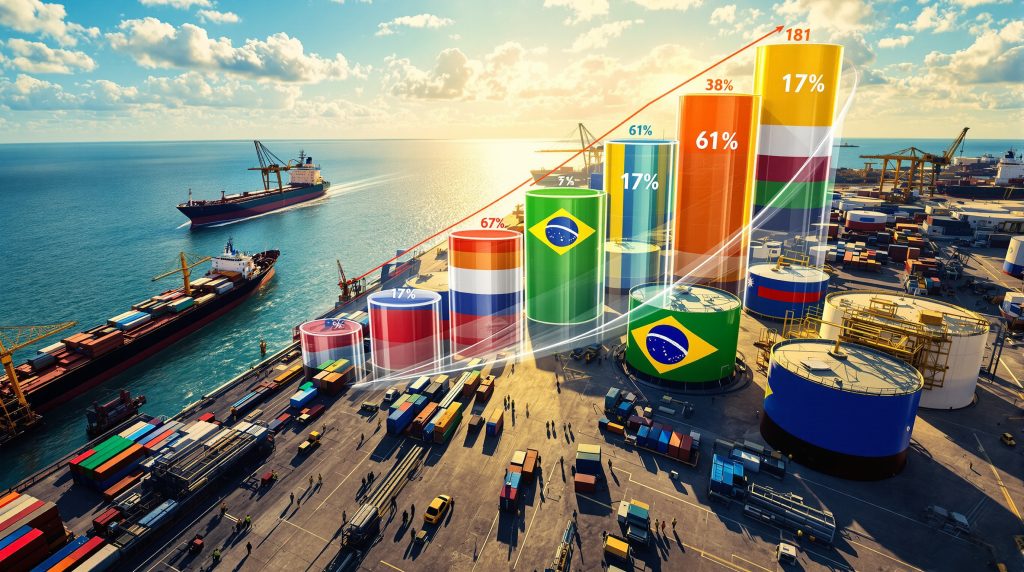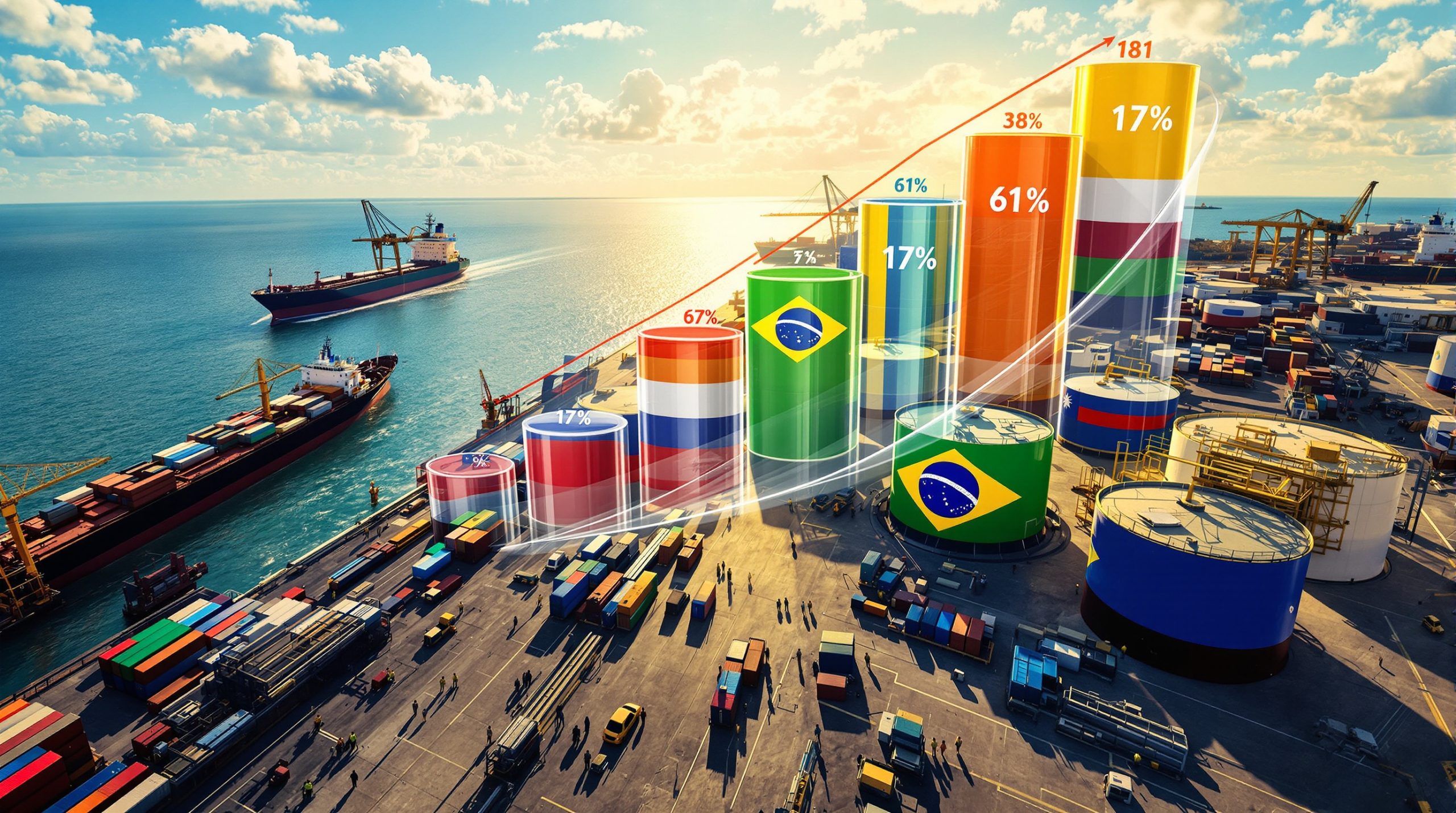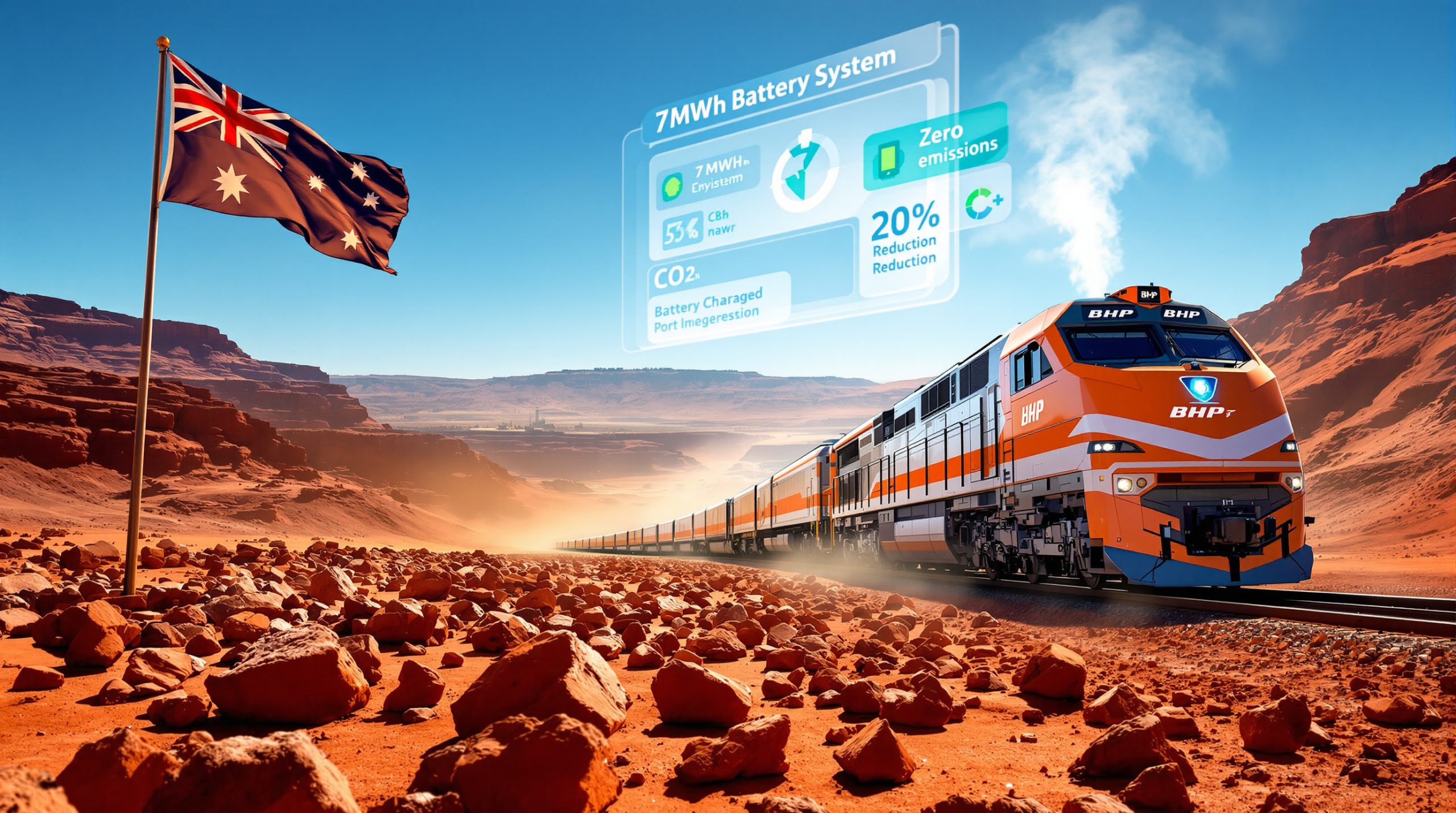Understanding Brazil's Supply Chain Crisis
Brazilian diesel importers face an unprecedented disruption as traditional Russian supply channels experience severe constraints throughout 2024-2025. The crisis stems from multiple converging factors that have fundamentally altered Brazil's energy import landscape, forcing rapid strategic pivots across the entire distribution network. These developments mirror broader oil price stagnation insights observed in global energy markets.
Primary disruption catalysts include:
• Infrastructure attacks targeting Russian refining facilities
• Expanded sanctions regimes affecting energy trade partnerships
• Unplanned maintenance at critical production facilities
• Rising domestic Russian fuel consumption reducing export capacity
The magnitude of this supply shock has caught many market participants unprepared, with Brazil importers Russian diesel shortage becoming a defining challenge for the nation's fuel distribution sector. What began as isolated supply hiccups has evolved into systematic procurement difficulties requiring comprehensive strategic responses.
Russian Diesel's Dominant Market Position
Russia's role in Brazil's diesel market reached substantial proportions before the current crisis, creating significant vulnerability when supplies became unreliable. The dependency levels demonstrate how concentrated Brazil's import strategy had become around a single geographic source.
Quantifying Market Dependency
| Time Period | Russian Market Share | Daily Volume (b/d) | Total Brazilian Imports (b/d) |
|---|---|---|---|
| January-July 2024 | 61% | 197,530 | 337,625 |
| August 2024 | 51% | 139,810 | 274,137 |
| September 2024 | 30% | 82,782 | 275,940 |
| October 2024 | 17% | 62,475 | 367,647 |
Source: Brazilian Trade Ministry data via Argus Media, October 2025
The precipitous decline from 61% to 17% market share within four months illustrates the acute nature of supply disruptions. This represents approximately 135,000 barrels per day of lost Russian supply that Brazilian importers must replace through alternative channels.
During the peak dependency period of January through July 2024, Russian diesel averaged 197,530 barrels per day, constituting nearly three-fifths of Brazil's total diesel imports. This concentration level created significant single-source risk that materialised dramatically in subsequent months.
Regional Impact Variations
The supply disruption affects different Brazilian regions with varying intensity based on historical sourcing patterns and logistics infrastructure. Northern and northeastern states, traditionally more dependent on transatlantic supply routes, experienced more severe adjustment pressures compared to southern regions with established alternative supplier relationships.
Infrastructure Attacks and Production Constraints
Multiple factors converge to create Russia's reduced diesel export capacity, with infrastructure targeting representing the most visible and immediate constraint on production capabilities.
Ukrainian Military Operations Impact
Ukrainian drone attacks have targeted more than 10 Russian refineries since August 2024, affecting facilities with combined crude processing capacity of approximately 2.3 million barrels per day. Several installations have experienced multiple strikes, compounding operational disruption and extending recovery timelines.
Key operational indicators:
• Declining rail fuel shipments signalling reduced production output
• Regional supply shortages coinciding with peak summer demand
• Extended repair timelines with uncertain completion schedules
• Some facilities experiencing repeated targeting within recent weeks
The infrastructure campaign demonstrates strategic targeting of Russia's refining network, creating cascading effects throughout the export supply chain. Rail freight volume declines serve as proxy indicators for production recovery pace, providing market participants with real-time operational assessment tools.
Seasonal Demand Pressures
Supply problems in certain Russian regions have coincided with peak domestic motor fuel demand during summer months, creating competing pressures between internal consumption needs and export commitments. This timing exacerbates supply constraints for international buyers, including Brazilian importers.
Russian refineries must simultaneously address infrastructure damage repairs whilst meeting elevated domestic demand, leaving limited surplus capacity for export markets. The dual pressure of reduced production capability and increased internal consumption creates particularly acute supply shortages for international customers.
Sanctions Regime Evolution
Recent announcements of potential secondary sanctions against Russia and trading partners have intensified compliance challenges for Brazilian importers. These regulatory pressures add uncertainty to procurement planning, even when Russian supplies become physically available.
Compliance Considerations: Secondary sanctions threats have prompted Brazilian distributors to reassess risk exposure levels, with some cancelling previously agreed contracts to avoid potential regulatory violations.
Additional considerations include possible partial diesel export restrictions for non-producers through end of 2025, further constraining available supply volumes for Brazilian procurement teams.
Economic Dynamics and Pricing Pressures
The traditional cost advantage that made Russian diesel attractive to Brazilian importers has significantly eroded, fundamentally altering procurement economics and strategic decision-making processes. Furthermore, these price pressures reflect broader tariffs and inflation trends affecting global commodity markets.
Price Differential Evolution
Historical vs. Current Pricing Structure:
• Previous benchmark advantage: 5-6¢/USG discount to U.S. Gulf Coast product
• Current north-northeast pricing: 7¢/USG below November NYMEX futures
• Current south-southeast pricing: 6.5¢/USG below November NYMEX futures
• Alternative sources range: 4-7¢/USG discount to benchmark contracts
Source: Argus Media pricing indicators for Brazil-bound 10ppm S10 diesel, October 2025
The narrowing price differential reduces economic incentives for Russian diesel imports, even when volumes become available through existing contractual arrangements. Russian product pricing now approaches levels offered by alternative suppliers, diminishing the primary competitive advantage that historically drove sourcing decisions.
Market Pricing Convergence
Pricing convergence between Russian and alternative sources represents a fundamental shift in procurement economics. The historical 5-6 cent per gallon advantage has compressed to levels that no longer justify single-source dependency risks, encouraging diversification strategies across the Brazilian import sector.
Regional pricing variations reflect shipping distance considerations and port infrastructure capabilities. The north-northeast region shows slightly larger discounts (7¢/USG) compared to south-southeast areas (6.5¢/USG), indicating transportation cost factors influence regional pricing structures.
Strategic Diversification Initiatives
Faced with Russian supply uncertainty, Brazilian distributors have accelerated diversification efforts across multiple geographic regions, establishing new supplier relationships and logistics partnerships to maintain stable fuel supplies.
Emerging Supply Sources
Primary Alternative Sources (October 2024 Projections):
| Supply Origin | Daily Volume (b/d) | Market Share | Key Advantages |
|---|---|---|---|
| United States Gulf Coast | 69,300 | 24.8% | Established infrastructure, regulatory compliance |
| India | 65,940 | 23.6% | Competitive pricing, production capacity |
| Oman/UAE Combined | 70,350 | 25.2% | Strategic location, supply reliability |
Source: Vortexa analytics via Argus Media, October 2025
The three major alternative sources collectively represent approximately 73.6% of projected October 2024 imports, demonstrating rapid supply chain rebalancing away from Russian dependency. This diversification reduces single-source concentration risk whilst maintaining total import volumes.
United States Gulf Coast Advantages
U.S. Gulf Coast suppliers offer established logistics infrastructure with regulatory compliance advantages relative to sanctioned suppliers. American refineries provide reliable production capacity backed by transparent pricing mechanisms and established trade finance structures.
The 69,300 barrels per day projected from U.S. sources represents renewed emphasis on Western Hemisphere supply partnerships, reducing shipping distances and transit time uncertainties compared to alternative global sources. Moreover, these developments align with energy drilling policy shift initiatives in North America.
Indian Refinery Engagement
Indian refineries, particularly Nayara Energy's Vadinar facility, have gained significant momentum in Brazilian import channels despite EU sanctions considerations. The facility offers competitive pricing and substantial production capacity, though compliance considerations require careful legal assessment.
Projected Indian volumes of 65,940 barrels per day indicate Brazilian importers' willingness to navigate complex regulatory environments to secure alternative supplies. The Vadinar refinery's alleged links with Russian state-owned Rosneft create compliance complexities that require specialised legal and risk management expertise.
However, reports indicate Brazilian importers are adapting to Russian diesel shortages by securing alternative supply arrangements despite these regulatory challenges.
Middle Eastern Supply Partnerships
Combined flows from Oman and UAE totalling 70,350 barrels per day represent strategic geographic diversification toward traditionally reliable Middle Eastern suppliers. These sources offer political stability, consistent production records, and established global trade relationships.
Middle Eastern suppliers provide geographic risk diversification whilst maintaining competitive pricing structures. The region's strategic positioning and infrastructure capabilities enable flexible supply arrangements that accommodate changing market conditions.
Distributor Segment Impact Analysis
The Russian diesel shortage affects different segments of Brazil's distribution network with varying degrees of severity, creating competitive advantages for some players whilst challenging others' operational viability. Consequently, these dynamics influence trade tariffs impact on the broader energy sector.
Large vs. Small Distributor Responses
Major distributors have leveraged established supplier relationships and financial resources to secure alternative supplies more effectively than smaller operators. Their negotiating power and credit facilities enable faster adaptation to changing supply conditions.
At least one major distributor experienced cancellation of previously agreed Russian supply volumes due to unscheduled refinery maintenance. However, larger operators generally maintain multiple supplier relationships that provide operational flexibility during supply disruptions.
Smaller distributors face more significant challenges across multiple operational dimensions:
• Negotiating leverage limitations with established alternative suppliers
• Increased working capital requirements due to higher pricing and extended payment terms
• Logistics network adaptation costs for accommodating different supply origins and delivery schedules
• Risk management complexity in assessing sanctions compliance across multiple potential suppliers
Competitive Dynamics Shifts
The supply crisis creates bifurcated market access patterns, with established players better positioned to secure priority allocation from alternative suppliers. This dynamic may accelerate market consolidation as smaller operators face viability challenges or seek strategic partnerships with larger distributors.
Financial capacity differences become pronounced during supply disruptions, as alternative suppliers often require enhanced credit terms or advance payments to compensate for increased counterparty risks.
Logistics Infrastructure Adaptation
Shifting away from Russian diesel requires significant adjustments in shipping logistics, port operations, and distribution networks throughout Brazil's fuel supply chain.
Transportation Route Modifications
Extended shipping distances from alternative supply sources increase transit times and transportation costs compared to historical Russian routes. U.S. Gulf Coast, Indian, and Middle Eastern origins require different port infrastructure and storage facility configurations.
Key logistical adjustments include:
• Port capacity optimisation for increased volumes from non-Russian sources
• Storage facility timing coordination to accommodate different arrival patterns and vessel scheduling
• Distribution network reconfiguration for new supply origin integration
• Inventory management adaptation for extended lead times and supply cycle variations
Infrastructure Investment Implications
Brazilian energy infrastructure may require targeted investments to support diversified supply origins effectively. Port facilities, storage terminals, and distribution networks developed around Russian supply patterns need operational flexibility enhancements.
The logistics adaptation process creates opportunities for infrastructure investment in areas such as:
• Enhanced port receiving capabilities for different vessel sizes and cargo specifications
• Strategic storage expansion to buffer supply timing variations
• Improved inland distribution networks to accommodate new supply routing patterns
Energy Security and Strategic Implications
The current crisis serves as a catalyst for broader strategic discussions about Brazil's energy import dependency and long-term supply chain resilience planning.
Supply Chain Resilience Benefits
Forced diversification generates several strategic advantages for Brazilian energy security:
• Reduced single-source dependency risk through multiple supplier relationships
• Enhanced negotiating leverage with diversified procurement options
• Improved market intelligence across global diesel supply networks
• Strengthened diplomatic relationships with alternative supplier countries
The crisis demonstrates vulnerabilities inherent in concentrated supply arrangements whilst highlighting the importance of maintaining diverse supplier portfolios for energy security purposes.
Long-term Infrastructure Considerations
Brazilian energy stakeholders evaluate infrastructure investments to support enhanced supply security and reduced import dependency. Strategic considerations include domestic refining capacity expansion, petroleum reserve development, and alternative fuel production scaling.
Investment priority areas:
• Domestic refining capacity enhancement to reduce import dependency levels
• Strategic petroleum reserve development for emergency supply security
• Port infrastructure modernisation to accommodate diversified supply origins
• Biofuel production expansion as domestic alternative fuel development
Geopolitical Scenario Planning
Ongoing geopolitical tensions require Brazilian importers to develop contingency plans for various potential scenarios affecting global fuel supply networks.
Strategic planning scenarios include:
• Extended Russian supply constraints requiring permanent diversification strategies
• Sanctions escalation potentially affecting additional supplier countries or trading mechanisms
• Regional conflict expansion impacting global shipping routes and supply chain reliability
• Trade relationship evolution between Brazil and major fuel supplier nations
Market Psychology and Investment Implications
The Brazilian diesel import crisis reveals important insights about market psychology, risk assessment, and strategic decision-making under uncertainty conditions. These observations align with broader global market impact analysis of supply chain disruptions.
Risk Assessment Evolution
Market participants have fundamentally reassessed single-source supply risks, with many distributors implementing enhanced risk management protocols for supplier evaluation and contract negotiation. The crisis demonstrates how quickly concentrated supply arrangements can become liabilities.
Emerging risk management practices:
• Diversified supplier portfolio requirements across geographic regions
• Enhanced contract flexibility provisions enabling rapid supplier transitions
• Extended lead time planning to accommodate longer shipping routes
• Sanctions compliance integration in procurement decision frameworks
Strategic Learning Applications
Brazil's rapid adaptation to supply disruptions provides valuable lessons for other emerging market economies with similar energy import dependencies. The experience highlights the importance of proactive diversification before crisis situations develop.
Key strategic principles demonstrated:
• Proactive relationship development with multiple supplier regions
• Flexible procurement structures enabling rapid strategic adjustments
• Risk assessment integration throughout supplier selection processes
• Crisis response planning for various supply disruption scenarios
Investment Strategy Implications
The diesel supply crisis creates investment opportunities in Brazilian energy infrastructure, logistics capabilities, and domestic production capacity. Strategic investors may identify value creation opportunities in supply chain resilience enhancement and energy security infrastructure development.
Infrastructure investment themes include storage capacity expansion, port facility modernisation, and domestic refining capability enhancement. These investments address structural vulnerabilities revealed by the Russian supply crisis whilst positioning Brazil for enhanced energy independence.
Technical Specifications and Market Dynamics
Understanding the technical aspects of diesel specifications and quality requirements helps explain supplier transition challenges and pricing differential variations across alternative sources.
Product Specification Requirements
Brazilian diesel imports focus primarily on 10ppm sulfur content (S10) diesel, meeting domestic environmental standards and engine compatibility requirements. Alternative suppliers must demonstrate ability to consistently deliver product meeting these specifications.
Quality consistency becomes particularly important when transitioning between suppliers, as specification variations can affect engine performance, emissions compliance, and distribution network compatibility throughout Brazil's fuel system.
Pricing Mechanism Understanding
November NYMEX futures serve as benchmark pricing for current procurement decisions, indicating forward-month pricing drives strategic planning rather than spot market conditions. This forward-pricing focus enables better financial planning and risk management for importers.
Regional pricing variations (north-northeast vs. south-southeast) reflect transportation cost differentials and port infrastructure capabilities, providing insights into logistics optimisation opportunities for different supply sources.
Future Market Evolution Prospects
The Brazilian diesel import market's evolution depends on multiple variables including Russian production recovery, sanctions regime development, and alternative supplier capacity expansion.
Supply Recovery Scenarios
Market participants expect Russian diesel flows to resume eventually, though timing and pricing remain uncertain. Recovery scenarios range from gradual restoration to prolonged constraint periods requiring permanent supply chain restructuring.
Potential recovery trajectories:
• Rapid restoration with price advantage recovery (low probability)
• Gradual recovery with compressed price differentials (moderate probability)
• Extended constraints requiring permanent diversification (higher probability)
Competitive Landscape Changes
Alternative suppliers may seek to establish permanent market positions in Brazil rather than serving as temporary Russian replacements. This dynamic could create enhanced competition and pricing benefits for Brazilian importers over time.
Supplier competition intensification may drive infrastructure investments, pricing innovations, and service enhancements that benefit Brazilian fuel distributors beyond the immediate supply crisis resolution.
Disclaimer: This analysis incorporates market data and insights available as of late 2025. Geopolitical situations, sanctions regimes, and supply conditions remain subject to rapid change. Market participants should verify current conditions and regulatory requirements before making procurement decisions.
The Brazil importers Russian diesel shortage demonstrates how quickly concentrated supply arrangements can become strategic vulnerabilities. However, the market's rapid diversification response also illustrates the resilience and adaptability possible when faced with significant supply chain disruptions. Understanding these dynamics provides valuable insights for energy market participants globally facing similar strategic challenges.
Looking to Capitalise on Energy Market Disruptions?
Energy supply chain crises like Brazil's diesel shortage create significant opportunities for savvy investors in ASX-listed mining and energy companies. Discovery Alert's proprietary Discovery IQ model delivers real-time alerts on significant mineral and energy discoveries across Australian markets, empowering subscribers to identify actionable opportunities ahead of the broader market. Begin your 30-day free trial today and position yourself to profit from global energy transitions and commodity market shifts.




